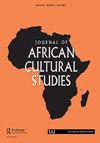“The Fake is News”: On Popular Visual Media, Fakery and Legitimacy Contestations in Charismatic Christianity in Contemporary Ghana
IF 0.9
2区 社会学
Q2 CULTURAL STUDIES
引用次数: 1
Abstract
ABSTRACT Three key questions guide this investigation into specific accusations of fakery related to some Christian religious leaders’ acts in contemporary Ghana. The first question is: what do moving images and other popular visual forms (such as cartoons) contribute to assessments and accusations of fakery? The second question is: what can we learn from a close examination of religious leaders and their actions that citizens consider fake? The last question is: who gets to make public accusations of fakery on Ghanaian religious matters? I argue that the various analyzed cartoons and memes contribute to ongoing public discussions of the religious leaders as fake. I show how some of these religious leaders seem motivated by the need to be recognized as possessing superior supernatural powers which they exchange for material wealth. I draw attention to specific categories of Ghanaians, such as certain politicians with clout, to level accusations that these religious pastors are fakes.“假的就是新闻”:当代加纳灵恩基督教中流行的视觉媒体、虚假和合法性争论
摘要三个关键问题指导了对当代加纳一些基督教宗教领袖行为的具体造假指控的调查。第一个问题是:运动图像和其他流行的视觉形式(如漫画)对造假的评估和指控有什么贡献?第二个问题是:我们能从对宗教领袖及其公民认为是假的行为的仔细检查中学到什么?最后一个问题是:谁能公开指责加纳宗教事务造假?我认为,各种经过分析的漫画和模因助长了正在进行的关于宗教领袖的虚假公开讨论。我展示了这些宗教领袖中的一些人似乎是出于被承认拥有卓越的超自然力量的动机,他们用这些力量换取物质财富。我提请注意特定类别的加纳人,比如某些有影响力的政客,以指责这些宗教牧师是伪造的。
本文章由计算机程序翻译,如有差异,请以英文原文为准。
求助全文
约1分钟内获得全文
求助全文
来源期刊

Journal of African Cultural Studies
Multiple-
CiteScore
1.70
自引率
10.00%
发文量
13
期刊介绍:
The Journal of African Cultural Studies publishes leading scholarship on African culture from inside and outside Africa, with a special commitment to Africa-based authors and to African languages. Our editorial policy encourages an interdisciplinary approach, involving humanities, including environmental humanities. The journal focuses on dimensions of African culture, performance arts, visual arts, music, cinema, the role of the media, the relationship between culture and power, as well as issues within such fields as popular culture in Africa, sociolinguistic topics of cultural interest, and culture and gender. We welcome in particular articles that show evidence of understanding life on the ground, and that demonstrate local knowledge and linguistic competence. We do not publish articles that offer mostly textual analyses of cultural products like novels and films, nor articles that are mostly historical or those based primarily on secondary (such as digital and library) sources. The journal has evolved from the journal African Languages and Cultures, founded in 1988 in the Department of the Languages and Cultures of Africa at the School of Oriental and African Studies, London. From 2019, it is published in association with the International African Institute, London. Journal of African Cultural Studies publishes original research articles. The journal also publishes an occasional Contemporary Conversations section, in which authors respond to current issues. The section has included reviews, interviews and invited response or position papers. We welcome proposals for future Contemporary Conversations themes.
 求助内容:
求助内容: 应助结果提醒方式:
应助结果提醒方式:


